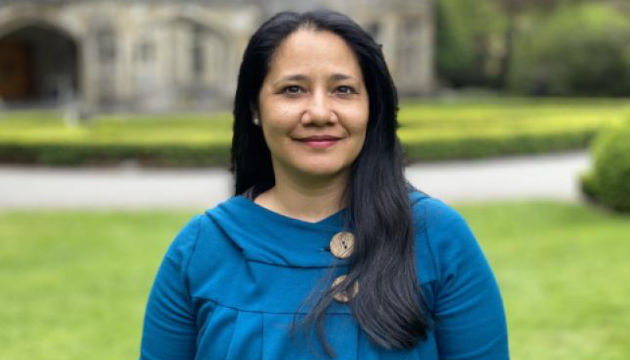The world is marking International Women’s Day on March 8, 2020.
According to the United Nations, the theme of this year’s celebration is ‘I am Generation Equality: Realizing Women’s Rights’.
The international body notes online that International Women’s Day is a “time to reflect on progress made”.
It is also a time to “call for change and to celebrate acts of courage and determination by ordinary women, who have played an extraordinary role in the history of their countries and communities”.
The U.N. points out that while the world has made “unprecedended advances…no country has achieved gender equality”.
The U.N. notes that women earn 23 percent less than men globally. Legal restrictions have kept 2.7 billion women from accessing the same choice of jobs as men. Women spend three times more time as men for unpaid care and domestic chores.
A total 750 million adults worldwide are illiterate, and two-thirds of them are women. Women occupy only 24 percent of parliamentary seats worldwide. One in three women experience physical or sexual abuse.
Here in Canada, the country has a self-declared feminist for a prime minister in the person of Justin Trudeau.
According to the Trudeau government, advancing gender equality is one of its most important priorities.
When the country marked Gender Equality Week in September 23-27, 2019, the federal government declared that it has made progress in advancing gender equality in Canada and around the world.
The government cited Canada’s first gender-gender balanced federal Cabinet as well investments in programs for women and girls in the country as well as abroad.
Another example mentioned is the investment of $40 billion on a National Housing Strategy, with at least 25 percent of projects supporting women, girls, and their families.
The government also pointed to its $200 million investment across government bodies to prevent gender-based violence, support survivors and their families, and create more responsive legal and justice systems.
The government also launched Canada’s Feminist International Assistance Policy to respond to the needs of local women’s organizations in developing countries.
On October 28, 2019, the Canadian Centre for Policy Alternatives (CCPA) and a network of more than 50 womens’ rights and equality-seeking organization released a report highlighting the work that still need to be done.
The report is aptly titled ‘Unfinished Business: A Parallel Report on Canada’s Implementation of the Beijing Declaration and Platform for Action’.
The study assessed Canada’s progress in meeting the goals for gender equality identified in the Beijing Declaration and Platform for Action.
According to a media release about the report, the Beijing Declaration is the “most progressive global blueprint ever for advancing women’s rights”.
The declaration was adopted unanimously in 1995 by 189 countries, including Canada.
The report noted that between 2006 and 2018, Canada’s gender gap in economic participation and opportunity inched forward an average of 0.2 percent per year.
At this lethargic rate, it will take 164 years for Canada to close the economic gender gap.
Men outnumber women in public and private sector management positions by two to one.
In the political arena, only 29 percent of members of the federal Parliament are women.
The latest available Statistics Canada data on gender, diversity, and inclusion shows that 61.4 percent of Canadian women participated in the labour force in June 2019, compared to 70.1 percent among men.
In 2016, less than one-fifth of all leadership roles were held by women, according to the federal statistics agency.
The Canadian Women’s Foundation put it bluntly this way: “If you think we’ve achieved gender equality in Canada, think again.”
According to the Toronto-headquartered organization, 1.9 million women in Canada live on a low income.
As well, women are 60 percent less likely than men to move from middle management to executive ranks.
The Canadian Women’s Foundation also notes that it costs Canada billions of dollars every year to deal with the effects of gender inequality.
“It’s estimated that promoting gender equality could add $150 billion to Canada’s GDP,” the organization points out.
As the CCPA’s ‘Unfinished Business’ report urges: “We can’t be complacent.”
“There are reasons yet to march, gaps yet to be closed,” the report notes.
The CFNet Editorial Board
Contact us at:










